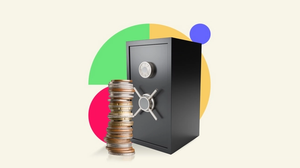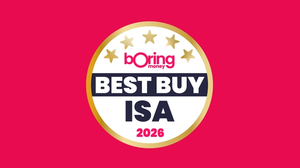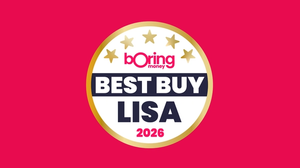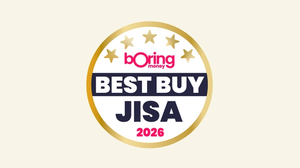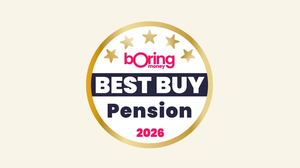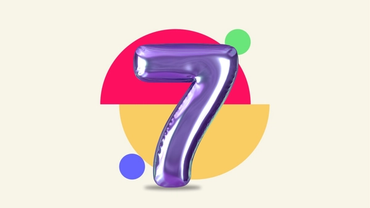10 tips to take control of your finances as inflation rockets
17 June, 2022
Written by James Hetherington
Yesterday, the Bank of England raised its 'base rate' from 1% to 1.25%. This is the rate it charges other banks and lenders when they borrow money.
This change isn't great news if you’re on a variable rate mortgage, as your monthly payments are likely to go up again. On the plus side, if you’re a cash saver, you might be able to earn a little more interest on your savings account. But that won't be enough to compensate for 9.1% inflation or your soaring energy and grocery bills, sadly!
But fear not!
Here our top 10 tips to take control of your finances as inflation and interest rates rise....
1 - If you haven’t already, consider opening a Self-Invested Personal Pension (SIPP)
Your pension can be your friend. Whatever you put in to a SIPP, you’ll get 25% tax relief from the Government. So, that’s £20 of free money per £80 you put in. And another £20 per £80 if you’re a higher-rate taxpayer.
2 - Open a Lifetime ISA if you’re between 18 and 39
Anyone lucky enough to be under the age of 40 can open a Lifetime ISA (LISA) to help the fund the cost of buying a first home, or retirement. You can put away up to £4,000 a year – and the Government will top up your savings with an inflation-busting 25% bonus. So that’s up to £1,000 of free money each year up for grabs. You can keep paying into a LISA until you’re 50.
3 - Download an app that can track your expenses
There are plenty of free ones available to help you monitor your day-to-day expenditure. Many of these apps can be linked to your bank accounts, investments and credit cards, to help you get an overview of what you're spending and what you could cut back on.
4 - Consider some financial coaching
If you're looking for guidance on how to manage your money and get a bit more organised, a financial coach could come in handy. While you can't get personalised recommendations like you would from a financial adviser, a coach can help you get your finances in shape understand your options, and help you work out what you need to focus on.
5 - Ask for a salary rise
With inflation at 9.1%, your salary is falling in real terms. So now might be a good time to ask for a pay increase – especially if you have an appraisal coming up. Be prepared to share your achievements and show the value you bring to the organisation. If you feel a bit awkward about asking for a raise right now, think of it this way: a 5% pay raise is still a pay cut when you factor in inflation. Sorry, it's a bit grim!
6 - And check if your income is keeping up with inflation
Use this calculator from the Office for National Statistics to work out how much income you need for your earnings to stay in line with inflation.
7 - Got any big, important purchases planned? Consider making them now
With inflation set to remain high for a while, you may be better of making big purchases now rather than later.
8 - If you are still *relatively* young (under 50) and saving for the long term, don't fret if your investments are down right now
Did you know that Stocks and shares have outperformed cash 9 out of 10 times in every 10-year period from 1899 to 2018? So the best thing you can do right now if your investment time line is 10 years+ is to keep saving, keep calm and carry on.
*According to a Barclays Equity Gilt study.
9 - If you're a parent, have you opened a Junior ISA (JISA)?
You can put up to £9,000 a year into a JISA for your children. This is one of the easiest ways to build a tax-efficient savings pot to help give them a head start in adulthood. Just don't tell them that they'll own the assets once they turn 18, or they'll spend it all on designer clothes and £15 cocktails.
10 - Or try a cash savings account if you can’t bear the thought of investing at the moment
Interest rates on popular savings accounts have improved a little in recent months, mainly due to the rise in the Bank of England’s base rate. While none will help you beat inflation, Hargreaves Lansdown is currently paying 2.36% for a 1-year fixed rate cash savings account, or 1.9% for a 6-month fix. For an account of £10,000, that’s £236 extra after a year (for the 1-year fixed rate option), versus £0 if you keep it in a standard current account.
Cash is generally a safer option if you need access to your money within 5 years. But if your timeframe is longer than this, you might want to consider dipping your toes into the stock market. Read this article to compare cash ISAs with Stocks and Shares ISAs.
Post a comment:
This is an open discussion and does not represent the views of Boring Money. We want our communities to be welcoming and helpful. Spam, personal attacks and offensive language will not be tolerated. Posts may be deleted and repeat offenders blocked at our discretion.


